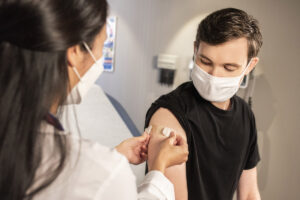Unlocking the Power of Ketosis
Often times patients ask our medical team about “keto” diet. Ketogenic diet, a dietary approach that has gained popularity for its potential health benefits, particularly in weight loss. The ketogenic diet is characterized by its emphasis on low-carbohydrate, high-fat foods. It works by shifting your body into a state of ketosis, where it burns fat for energy instead of carbohydrates. In this letter, we’ll explore the various benefits of a ketogenic diet for weight loss.
Effective Weight Loss
One of the primary benefits of a ketogenic diet is its effectiveness in promoting weight loss. By reducing your carb intake and increasing fat consumption, you can create a calorie deficit, leading to gradual and sustainable weight loss. Ketosis helps control hunger and stabilize blood sugar levels, making it easier to manage your calorie intake and shed excess pounds.
Improved Fat Metabolism
The ketogenic diet encourages your body to become more efficient at burning fat for energy. When you consume fewer carbs, your insulin levels drop, allowing your body to tap into its fat stores. This not only aids in weight loss but also improves overall fat metabolism, potentially reducing the risk of conditions like obesity and type 2 diabetes.
Enhanced Satiety
Unlike some other diets that may leave you feeling hungry and deprived, the ketogenic diet often leads to increased feelings of satiety. High-fat foods are more filling, which can help you control your appetite and reduce snacking between meals. This can be a significant advantage in maintaining a calorie deficit and achieving your weight loss goals.
Better Blood Sugar Control
For individuals with insulin resistance or type 2 diabetes, a ketogenic diet can be especially beneficial. By minimizing carb intake, blood sugar levels tend to stabilize, reducing the need for insulin. This can lead to improved glycemic control and potentially decrease the risk of diabetes-related complications.
Enhanced Mental Clarity
Aside from its weight loss benefits, many people on a ketogenic diet report improved mental clarity and focus. Ketones, the byproducts of fat metabolism during ketosis, are known to provide an alternative, efficient source of energy for the brain. This can result in heightened cognitive performance and increased alertness.
Better Lipid Profile
Contrary to the misconception that high-fat diets are detrimental to heart health, a well-structured ketogenic diet can actually improve your lipid profile. It often leads to decreased triglycerides, increased HDL (the “good” cholesterol), and reduced levels of LDL (the “bad” cholesterol), potentially reducing the risk of heart disease.
Consultation
The ketogenic diet offers a compelling approach to weight loss and overall health improvement. It can provide effective results, enhanced satiety, better blood sugar control, mental clarity, and a healthier lipid profile. However, it’s essential to consult with a healthcare professional or registered dietitian before embarking on this dietary journey. They can tailor a ketogenic meal plan to your specific needs and monitor your progress to ensure your safety and success.
We encourage you to reach out to us for guidance and support with the medical team at Jupiter Internal Medicine as you consider incorporating the ketogenic diet into your lifestyle. Your health and well-being are our top priorities, and we’re here to assist you on your path to a healthier, happier you.











